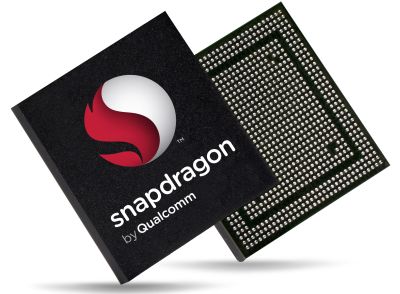Report: Qualcomm Chip Targets Ultra-Light Windows 8 Notebooks

Qualcomm is developing a quad-core Snapdragon S4 processor to compete with Intel’s Ultrabooks and Apple’s MacBook Air, according to a report
Qualcomm reportedly is developing a quad-core version of its Snapdragon S4 chip for thin and light Windows 8 notebooks that could compete with Intel’s Ultrabooks and Apple’s MacBook Air.
Intel has been looking to push its way into the mobile computing market dominated by devices running on chips designed by ARM Holdings, and the Ultrabook is one of the avenues being taken by the dominant chip maker.
Quad-core Snapdragon S4
But ARM and its manufacturing partners, including Texas Instruments and Nvidia, have talked about taking aim at the notebook PC market, leveraging the high-performance and low-power features of their processors. Qualcomm reportedly is the latest of these ARM partners to talk about that effort.
Rob Chandhok, senior vice president at Qualcomm, told IDG News that his company is developing a quad-core version of its Snapdragon S4 chip for Windows 8 laptops that he said will be thinner and lighter than the Intel-based Ultrabooks, and even Apple’s popular MacBook Air.
 Intel officials first broached the idea of Ultrabooks at the Computex show in May 2011, calling for a very thin and light notebook that would offer the user experience of traditional PCs as well as features normally found on tablets, including long battery life, instant-on and, eventually, touch-screen capabilities.
Intel officials first broached the idea of Ultrabooks at the Computex show in May 2011, calling for a very thin and light notebook that would offer the user experience of traditional PCs as well as features normally found on tablets, including long battery life, instant-on and, eventually, touch-screen capabilities.
They also would cost less than $1,000 (£620), making them price-competitive with the MacBook Air.
Analysts said Ultrabooks were not only a way to help Intel muscle its way into the exploding mobile computing market, but also to bolster a traditional PC space that has seen sales slow in the past few quarters, thanks in part to the rise in popularity of tablets.
Industry observers like the idea of Ultrabooks, but have wondered whether Intel and the systems makers could drive the cost down low enough to challenge Apple’s thin and light notebook or even tablets.
Some early Ultrabooks have gone on sale for $800 or less, but many still cost well above $1,000. In recent weeks, some media outlets have questioned whether the Ultrabook space will survive, and they point to a lack of systems that fit Intel’s definition of an Ultrabook.
New designs
However, Intel officials are expecting a flood of new designs as the year rolls along. In a 26 March blog post on Intel’s Chipshot website, blogger Becky Emmett argued that while the category is less than a year old, there already are 26 models of Ultrabooks currently on the market from manufacturers like Hewlett-Packard, Dell, Toshiba, Acer, Lenovo and Asus.
Ten more systems have been announced, and there are more than 75 additional ones coming later in 2012, she wrote.
Intel executives have said they expect the release of the upcoming 22-nanometre “Ivy Bridge” chips – which could begin as early as next month – will fuel more Ultrabook designs given their higher performance and lower power consumption than Intel’s current Sandy Bridge architecture.
Microsoft’s release of Windows 8, which is optimised for tablets, also will help.
Intel officials in the past have recognised ARM’s stated intentions of moving into the PC space, but have noted that those chips lack key features, including 64-bit capabilities and compatibility with many PC productivity applications. ARM officials have said they expect to bring 64-bit capabilities to their architectures with ARMv8 architecture, and that, by 2015, half of all mobile PCs – including tablets and mini-PCs – will be powered by ARM-based chips.
Windows 8 boost
They also have noted that Windows 8 also will support system-on-a-chip (SoC) architectures like ARM’s. At the Mobile World Congress show in March, Qualcomm officials announced that the Snapdragon processor was joining Mircrosoft’s Windows on ARM developer seeding programme.
Qualcomm’s Chandhok said the upcoming quad-core 28nm chip will offer greater performance and energy efficiency than previous versions, and eventually will include 64-bit support, though he couldn’t say when.
The Snapdragon chips also will have the advantage of being able to run software in parallel, something that could help in such applications in Windows 8 as games, Chandhok said, adding that Qualcomm is developing compilers to parallelise the program execution for such routine applications as browsers.
Are you an expert on social networks? Take our quiz.